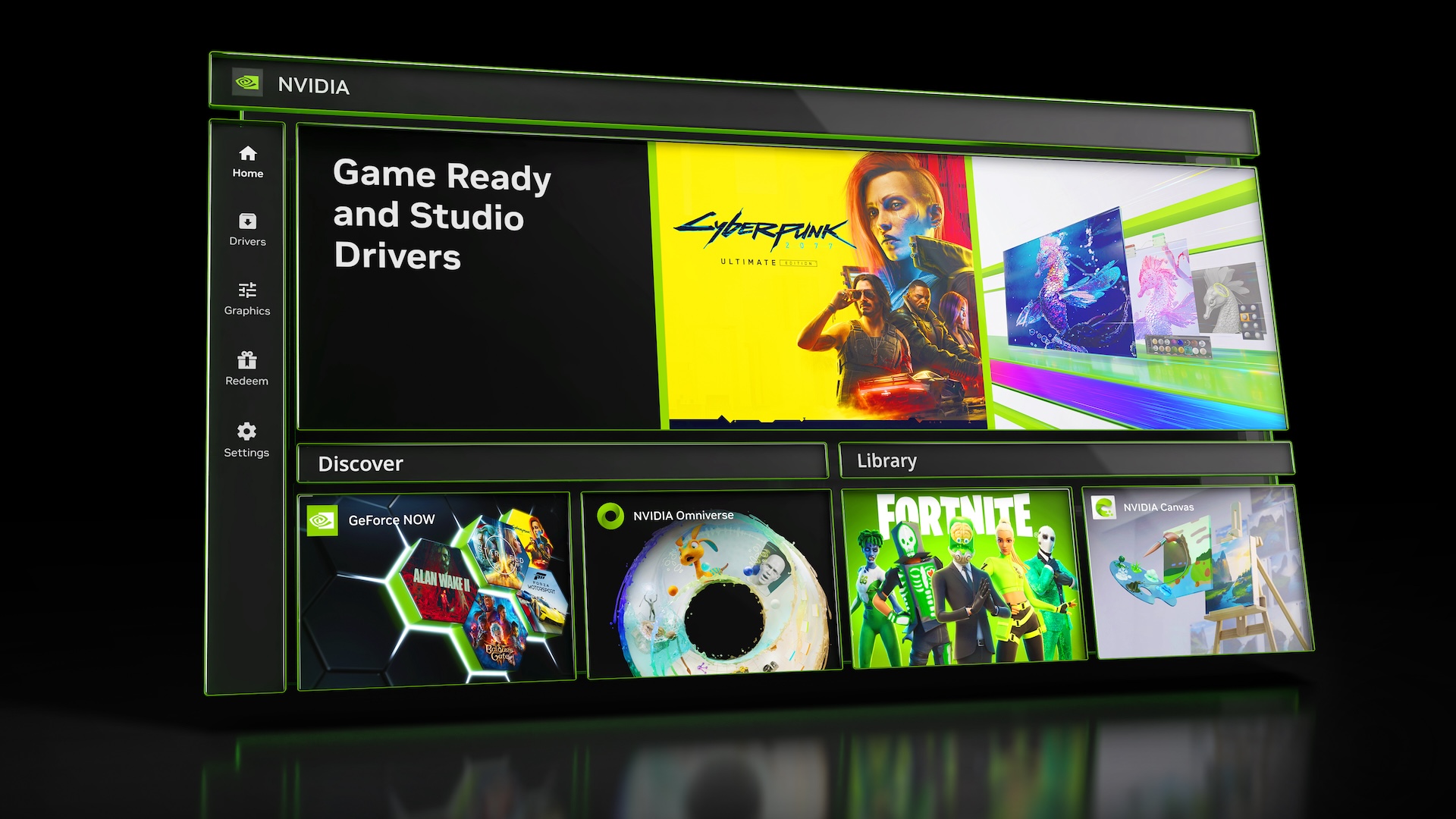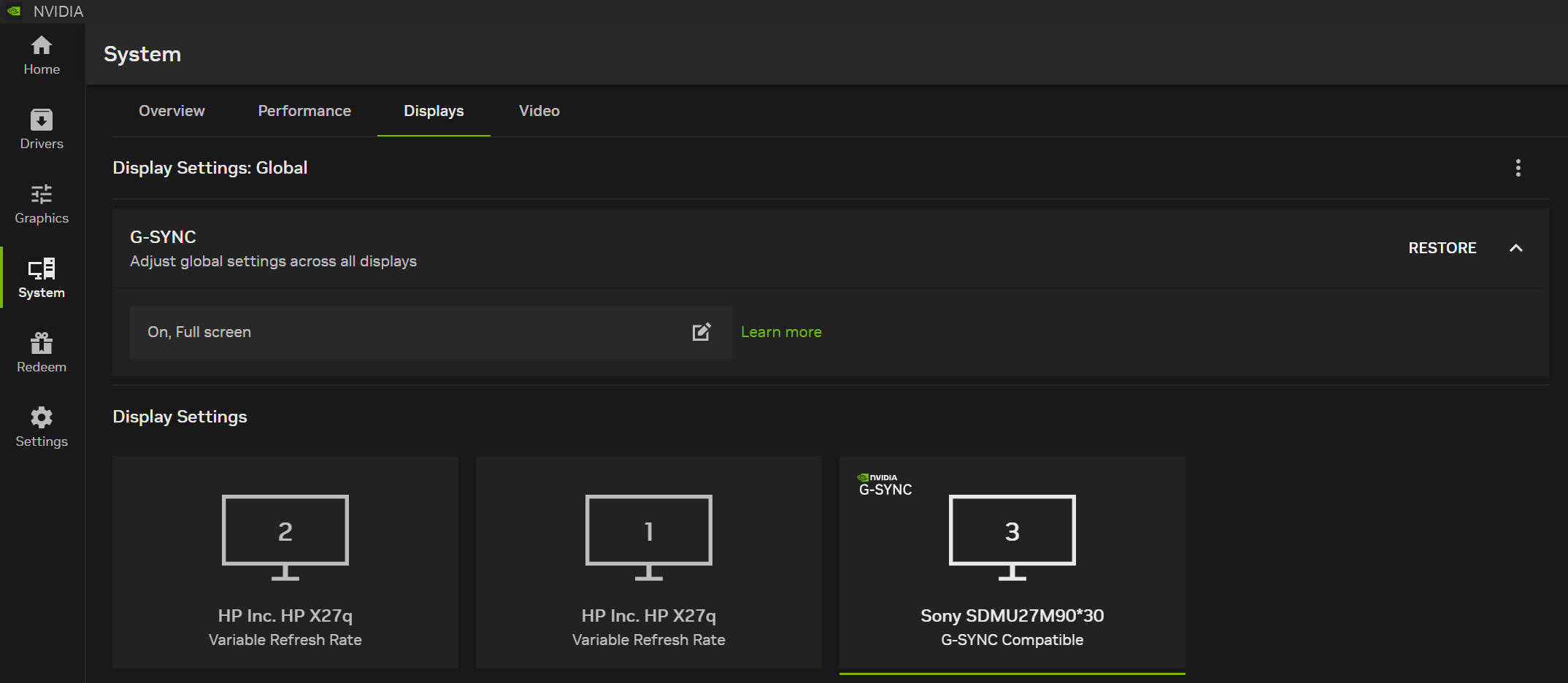
Nvidia is on a steady roll to replace the Nvidia Control Panel and GeForce Applications with its new Nvidia App. The latest update for Nvidia's new application (no pun intended) incorporates many new features, including multi-monitor RTX HDR support, driver rollback, and more. Nvidia also announced that the end of GeForce Experience is imminent, noting that all remaining users will be migrated to the Nvidia App before the end of the year.
G-Sync controls are now available in the Nvidia App. The GPU manufacturer has transferred all of the G-Sync functionality from the Nvidia Control Panel into its new Nvidia application, no longer requiring users to head to the control panel to change their G-Sync settings. G-Sync settings include a display section that shows which of your monitor(s) have G-Sync compatibility and menu options to turn G-Sync on or off completely and change how G-Sync activates—either with full-screen applications only or full-screen and windowed applications.
RTX HDR is another major update Nvidia has added to its new application. It is an AI-powered compatibility filter that converts SDR games into HDR on an HDR-compatible display. RTX HDR is now toggleable in the Game Filter options in the Nvidia App overlay, as long as you run a DX12, DX11, DX9, or Vulkan title and a driver update in the 565.xx branch or newer.

Regarding the overlay, Nvidia has purportedly listened to user feedback and introduced additional customization to the heads-up display. Hexadecimal color codes can now be manually entered to change the font color to any color you want.
Game sorting in the Nvidia app has been improved. User sorting and filtering of games and apps now persists. Users can also now hide any apps or games they don't want shown in the Nvidia app and remove manually added programs. The Nvidia App will warn users if DRM content prevents ShadowPlay from recording.
Driver rollback is now a feature in Nvidia's software suite. If needed, The Nvidia App can roll back to a previously installed driver. This is optimal when a new Nvidia driver is buggy and causing problems. Rolling back to a previously known stable driver can rectify issues in the newer driver update. Technically, before driver rollback was integrated, you could always clean and uninstall the buggy driver and reinstall the older driver. However, having rollback functionality built into the Nvidia App should make this process easier and more convenient.
As mentioned, Nvidia is now comfortable enough to push the Nvidia App to more users. Before the end of the year, Nvidia will migrate all GeForce Experience users to the Nvidia App, officially sunsetting the GeForce Experience before 2025.







